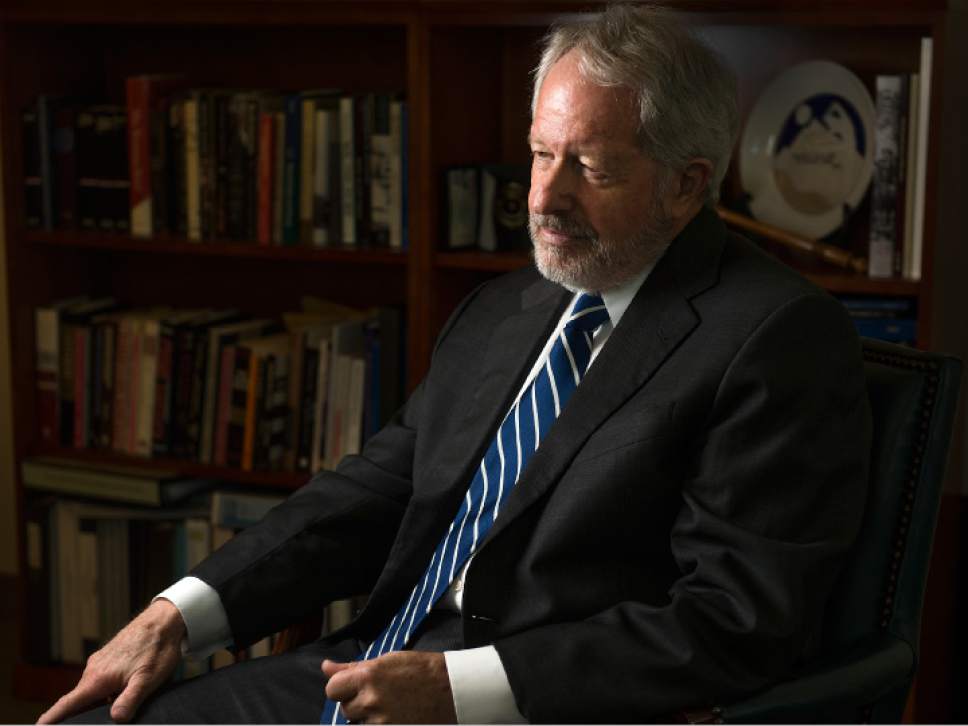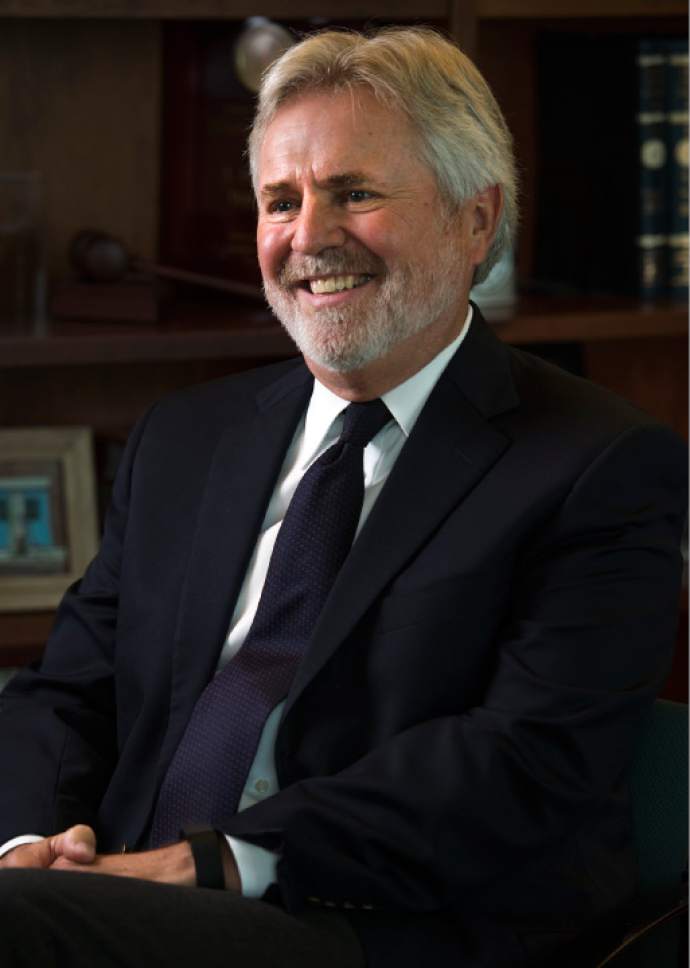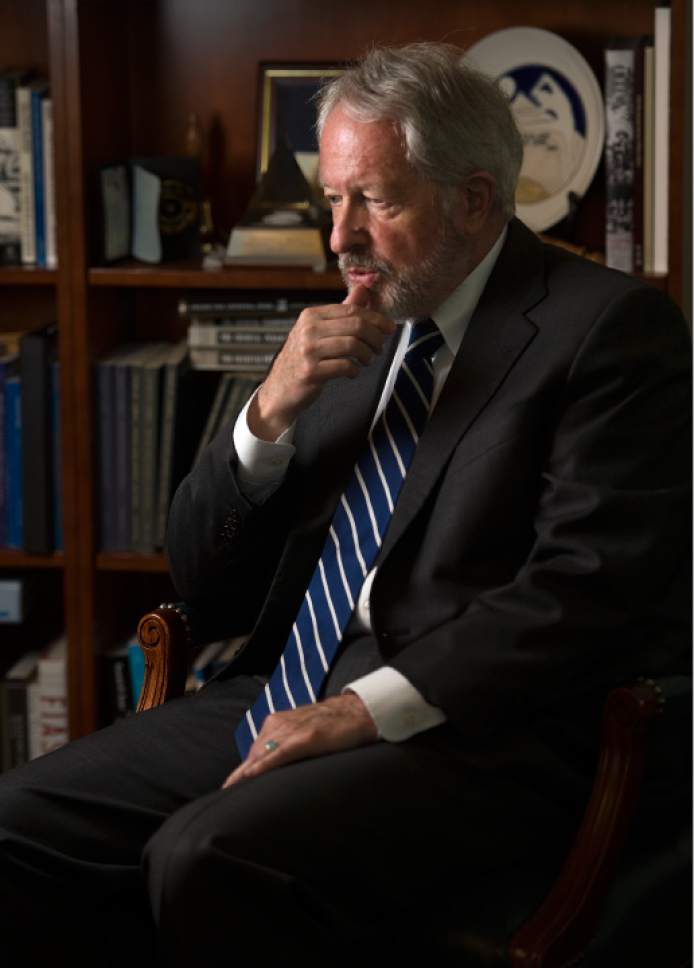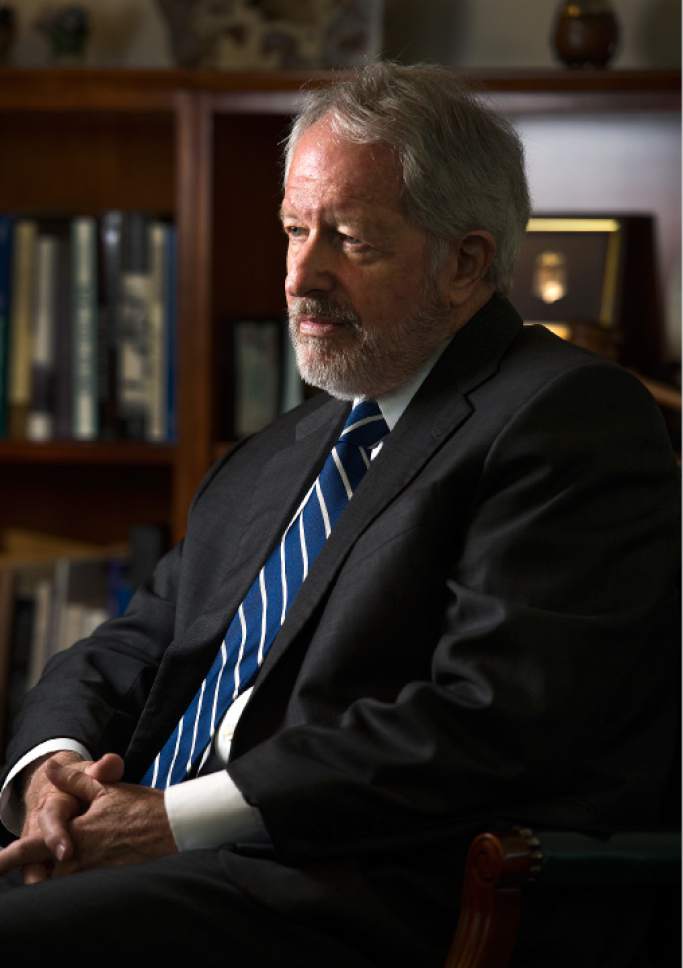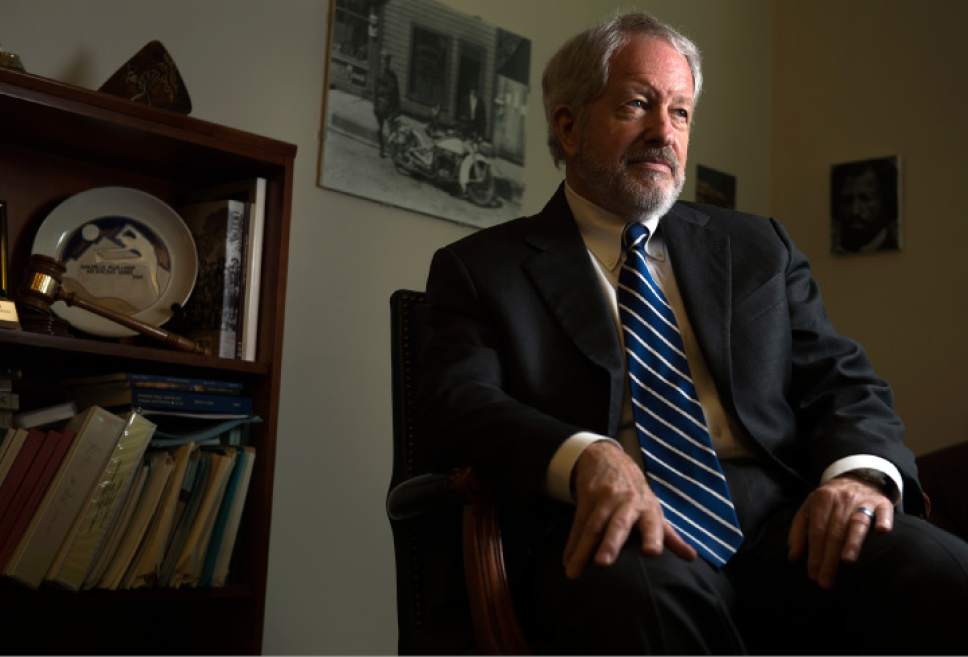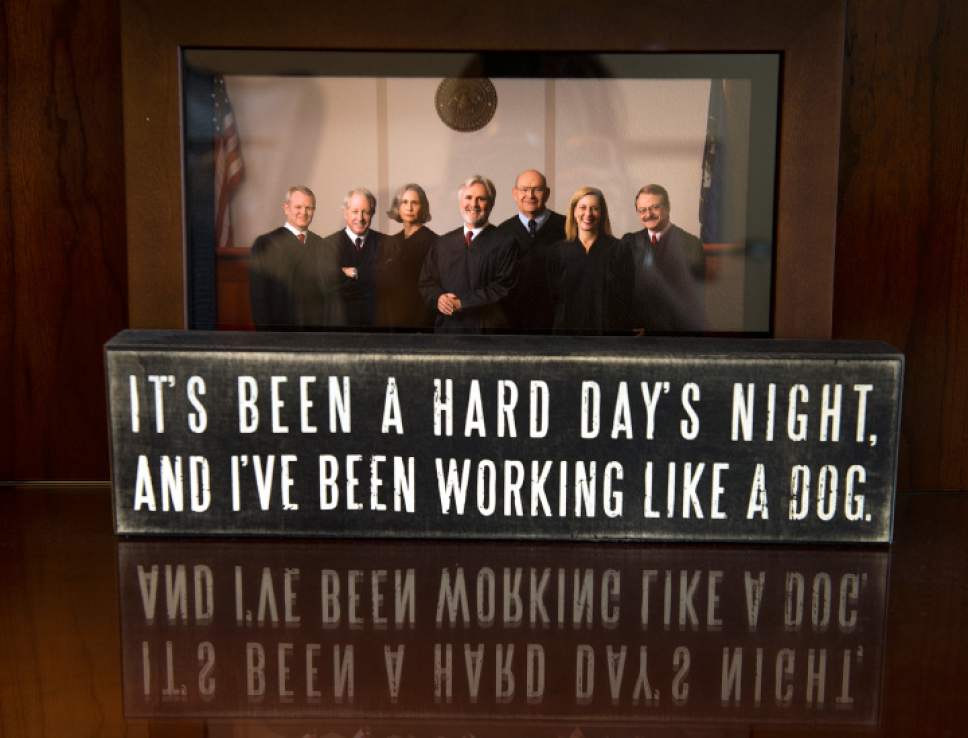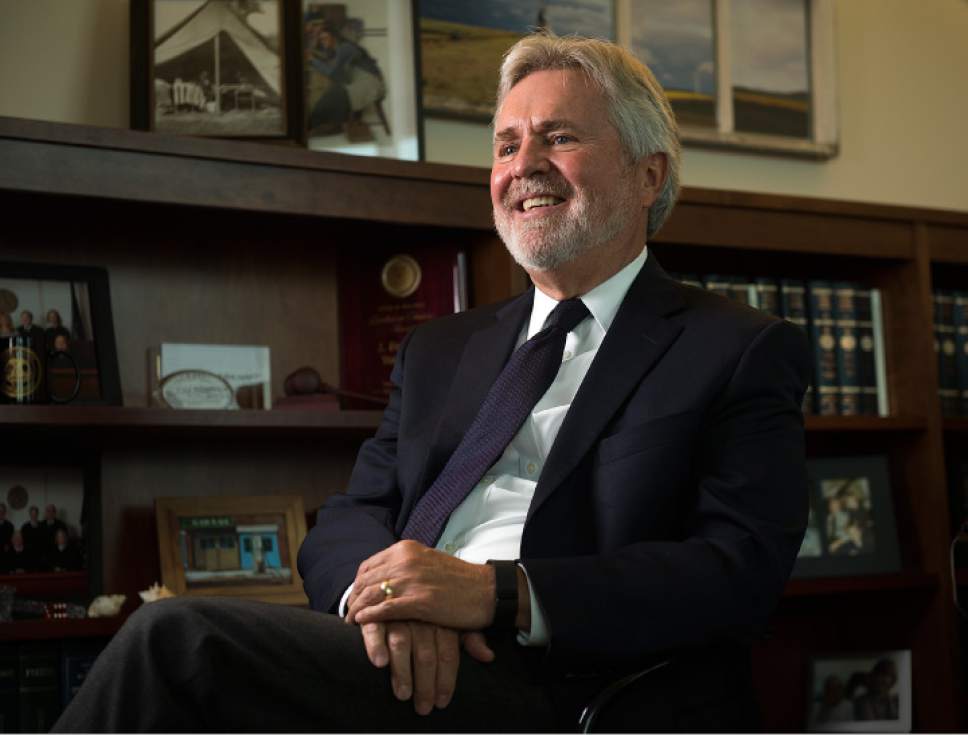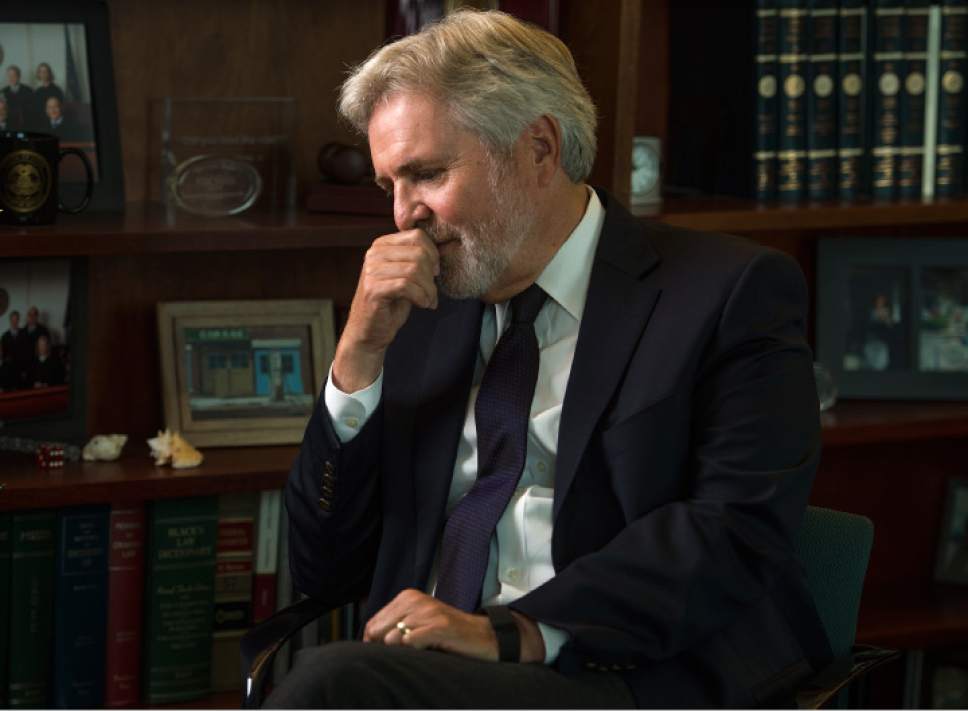This is an archived article that was published on sltrib.com in 2017, and information in the article may be outdated. It is provided only for personal research purposes and may not be reprinted.
Even before J. Frederic Voros Jr. and Stephen Roth were appointed to the Utah Court of Appeals, they were well-known and well-respected by members of the judiciary.
Voros, who served for years as chief of the criminal appeals division in the Utah Attorney General's Office, frequently argued in court for the state. Decisions handed down by Roth, a 3rd District Court judge, sometimes came before the appellate judges on appeal.
"Both came to the court with their reputations preceding them," Court of Appeals Associate Presiding Judge Gregory Orme said recently, adding that Voros was "one of our finest advocates" and Roth was a highly-regarded trial judge.
And both are retiring from the court on Aug. 1 with their reputations for outstanding work intact, according to Orme.
"They have both been brilliant jurists and wonderful colleagues," he said.
Utah Supreme Court Chief Justice Matthew Durrant concurs in that opinion.
"Their contributions to our judiciary and the citizens of Utah are many, and their legacy will be felt for years to come," Durrant said. "They have had extraordinary careers, and we owe them a tremendous debt of gratitude for their service."
Voros, the Court of Appeals presiding judge, and Roth, who took seats on the appellate bench in 2009 and 2010, respectively, have more in common than a retirement date.
Both grew up in California, both earned undergraduate English degrees and law degrees from Brigham Young University, and both have worked in private practice and for the government.
The two — both are married with children and grandchildren — plan to spend time with their families.
Voros also said he might do a little law practice work. A music lover — who has quoted Bob Dylan in an opinion and is the founder of the Western Hymn Writers Workshop — Voro also plans to write some hymns.
The Utah State Bar has picked Voros and Roth as Judge of the Year for 2017. The two will be recognized during the Bar's summer convention this week.
Roth, 72, was born in California to Utah native parents and grew up in Monterey. The family lived on the poor side of town above a cannery, he said.
"Often we were awakened by the seals barking there," Roth said.
His father drove a bread delivery truck and later became a real estate agent. His mother worked periodically as a legal secretary.
"Nobody in my family had ever gone to college, but they were learners," Roth said. "They loved learning. They respected it."
He applied to BYU because it seemed like an exotic place, Roth said. He was accepted but flunked out his first semester, with a grade-point average of about 0.8.
Roth said he got a letter from the university saying he would not be welcome back and suggesting that he seek "maturing experiences." He enlisted in the Marine Corps, which seemed to him to be the most maturing experience he could have.
When he came back to BYU four years later, Roth earned his undergraduate degree in English, with a minor in Portuguese. He then attended BYU's J. Reuben Clark Law School, graduating cum laude in 1977.
"I was much more successful when I got back in school," Roth said. "I was a different student. I was a better student."
After graduation came stints at law firms in Seattle and Salt Lake City, where he primarily practiced commercial litigation. Beginning in 1991, Ross served as an assistant U.S. attorney, working in the civil division.
After 25 years of practicing law, Roth decided to apply for a judgeship. He was appointed to the 3rd District Court bench in 2002 by Gov. Mike Leavitt and to the Court of Appeals in 2010 by Gov. Gary Herbert.
His experience on the bench has taught him that people aren't just the worst thing they did, Roth said. Utah is a leader in providing programs, such as drug courts, to help rehabilitate people, he said.
"People have to be held accountable for the choices they made, but people are also redeemable," Roth said.
Voros, 65, who grew up in San Luis Obispo, also was influenced by parents who had a love of learning.
His mother was a speech and rhetoric professor and college debate coach, and his father was a Hungarian immigrant who did not have a lot of formal education but was self-taught. The two met in a public speaking night class, where his mother was the teacher and his father was a student.
While growing up, Voros said, he venerated Abraham Lincoln and the Founding Fathers. And the Gettysburg address, with its proposition that all men are created equal, helped shape his outlook.
Eventually, he was drawn to the legal field.
"Law was about justice and about language, and those were two things I was fascinated with," Voros said.
After graduating from BYU's law school in 1978, Voros served as general counsel to Ricks College in Rexburg, Idaho, which is now BYU-Idaho. He returned to the Beehive State to be a law clerk for Utah Supreme Court Justice Dallin Oaks.
Following that job, he worked for two law firms before accepting a position in 1991 with the Utah Attorney General's Office. He spent 18 years there, serving as chief of the criminal appeals division for about half that time, until he was appointed to the Court of Appeals.
Voros said he likes the variety the job provides.
"One of the joys of being a state judge is that you deal with so many areas of the law," he said.
Another plus has been the privilege to serve with his fellow jurists, all of whom are "working to apply the law in an even-handed way," Voros said.
He credits the high quality of the Utah judiciary to the state's merit selection system. Under that system, a committee of lawyers and non-lawyers reviews applications for a judicial position and makes at least five nominations to the governor. The governor selects one for appointment to the job and the appointee is subject to confirmation by the Utah Senate.
Utah Attorney General Sean Reyes described Voros and Roth as dedicated public servants. And Troy Booher, a Salt Lake City attorney who has frequently argued cases at the Court of Appeals, said the two will be missed.
"Judge Voros in his opinions articulated clear rules that district courts could apply and citizens could rely upon," Booher said. "And Judge Roth in his opinions was exceedingly thorough."
Twitter: @PamelaMansonSLC —
New judicial appointments
Gov. Gary Herbert has appointed assistant U.S. attorney Diana Hagen and 3rd District Court Judge Ryan Harris to fill vacancies on the Utah Court of Appeals that will be created by the Aug. 1 retirements of Presiding Judge J. Frederic Voros Jr. and Judge Stephen Roth.
The appointees are subject to confirmation by the Utah Senate.
The Court of Appeals was created in 1987 and has seven judges. The judges, who sit in panels of three, hear appeals from district and juvenile courts.
If confirmed, Hagen's appointment will, for the first time, change the makeup of the appeals court to a majority of women.


